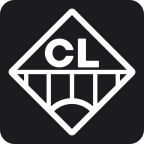Foreign scientists have set a new density record for laser-cooled molecules
Foreign scientists have successfully developed a new laser cooling and delivery technology that compresses a large number of molecules into an enclosed space while remaining ultra-cold.

Justin Burau, a researcher at the University of Colorado Boulder in the US, has cooled clumps of molecules below a maximum prepler-temperature using a unique magneto-optical trap.
Cooling molecular clouds to quantum degeneration requires a multi-stage process. First, the molecular clusters are confined in a magneto-optical trap (MOT) and laser-cooled to tens of μK, where three pairs of backpropagating laser beams converge at the zero of the quadrupole magnetic field. The molecular blob is then transferred to a trap (CT) for storage, where evaporative cooling is able to reduce its temperature to tens of nK.
The problem with this approach is that lasers, typically used for molecular MOTs, are "red detuned" with respect to molecular resonance and cannot fall below the Doppler cooling limit, thus producing relatively warm and diffused clumps of molecules. As a result, the number density of molecules transferred to CT is usually very low.
Burau and his colleagues use a process called gray molasses cooling to cool yttrium oxide molecules. The technique uses a blue detuned laser to drive molecules to a "dark" ground state, where they stop absorbing incoming photons.
Ultimately, they achieve subDoppler cooling and generate position-dependent forces that compress clusters of molecules by using light with a specific polarization configuration and a quadrupole field of MOTs. The researchers say this volume compression would help greatly improve the transport efficiency of molecules into CT (currently, it may be only a few percent).
Source: OFweek








